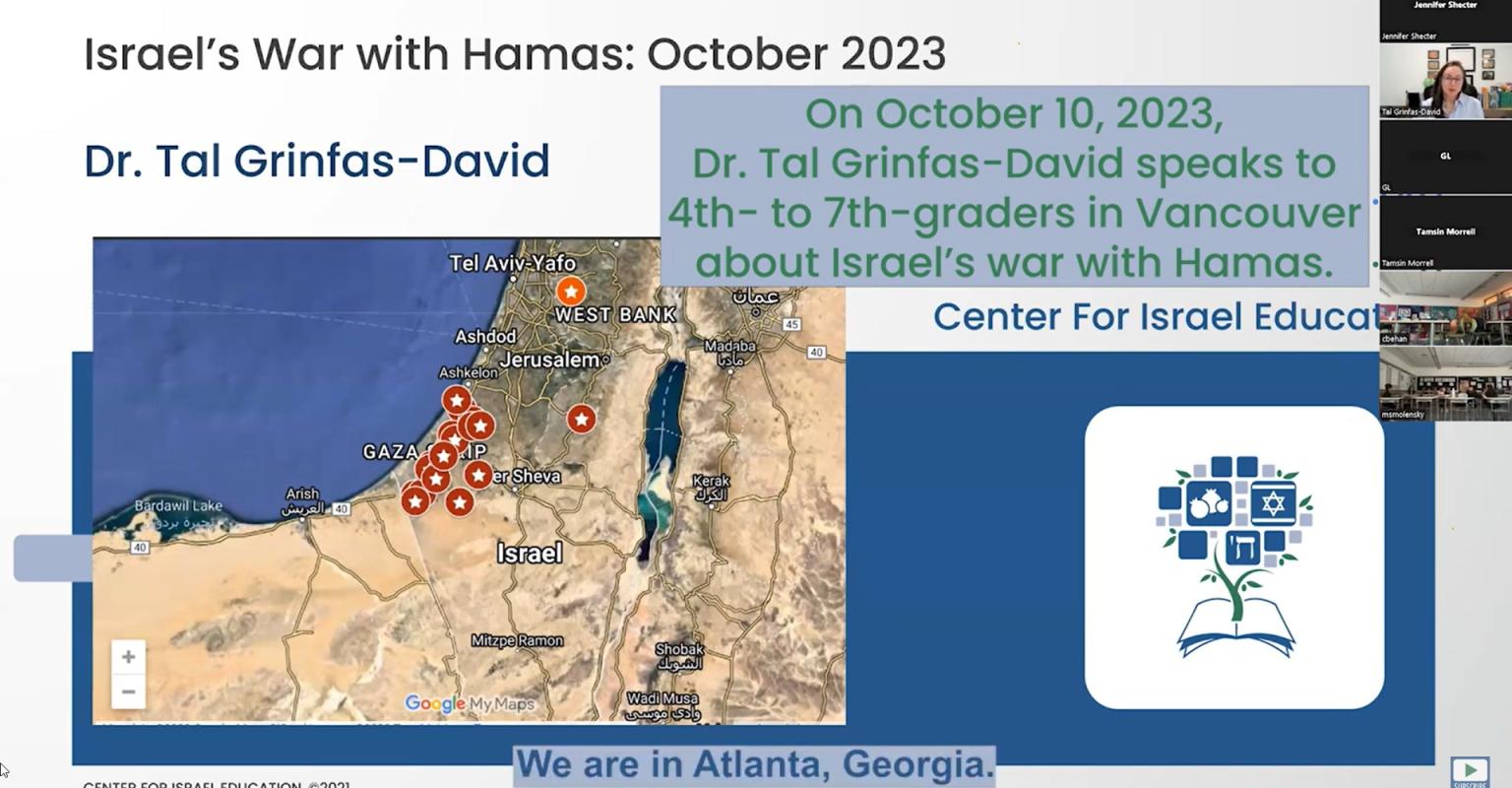A Philosophical Guide with Practical Implications for Israel Education and Engagement at The Jewish Education Project
As an agency dedicated to serving the broadest spectrum of the Jewish population, The Jewish Education Project holds the tenet of Jewish Peoplehood as central to our work. Integral to our deeply rooted commitment to the global Jewish collective is the primacy of Israel in our consciousness. Therefore, we believe that teaching and learning about Israel is essential for Jews today. While Israel education is a sub-category of Jewish education, learning about Israel is, in its own right, a necessary aspect of Jewish education that must be given primacy in the life trajectories of Jews today. In today’s world, Israel provides a positive connection with one’s Jewish heritage, culture, religion, language, and a sense of collective Jewish responsibility. At its heart, Israel education should provide enduring relationships between learners and the land, state, and people of Israel.
For us at The Jewish Education Project, it is impossible to imagine a comprehensive Jewish education that ignores teaching and learning Israel. Knowledge and connection to Israel—the land, the modern state, and the people—remain central to a holistic Jewish identity. At its core is Israel as a religious and cultural concept, from ancient times to the modern sovereign Jewish State. Since the establishment of the modern State, Israel education has also taken on a political dimension that both unites and divides the Jewish community. Many educational programs avoid tackling this complex content head-on primarily because of strongly biased views around purpose and intended outcomes of these lessons.
The Jewish Education Project firmly believes that Israel education should be provided to all young Jews and their families. The Jewish Education Project advocates for complex Israel education that recognizes the diverse and sometimes competing narratives at play in Israel today while animating the richness of everyday life and includes the conflicts that threaten Israel’s peace and security both internally and externally.
While Israel education involves the acquisition of knowledge (i.e. learning about Israel), it also involves asking some of the challenging questions about contemporary Jewish existence. Beyond its cognitive elements, it also provides experiences that transmit emotions and behavioral elements to engage the whole learner. One of the best approaches to Israel education offers authentic encounters with Israelis and the land of Israel, most commonly presented as travel to Israel – a fundamental component of good Jewish education.
Knowledgeable and skilled educators are integral to any positive educational process. Educators responsible for Israel education should have deep subject matter knowledge and the ability to represent content effectively toward the fulfillment of the purpose and goals of the curriculum. Israel educators must know how to create educational experiences that support independent critical thinking by the learner. Educators must also be committed to representing content in a nuanced, open-minded, multi-faceted perspective across cultures and issues. Because of the age continuum of our learners, Israel education must always be developmentally appropriate and build upon the learners’ educational experiences.
Most (young) Jews will be confronted with the big questions surrounding Israel at some stage of their life. What does it mean to have a Jewish homeland? What are the possible relationships between a Jew living outside of Israel towards the Jewish state? Can a Jewish state maintain its democracy? What does it mean for a historically persecuted people to now hold a position of power and strength?
To be reflective of the authenticity of Israel today, Israel education must embrace the positive aspects of Israel as well as its complexities, struggles, and conflicts, which can be fraught with anxiety and emotion. We embrace the educational principle that complexity and struggle is often best encountered when it is built on a foundation of love and emotional attachment. Our youth will inevitably encounter Israel in multiple formats and forums; Jewish education should provide the foundation for this engagement.
STRATEGIC IMPLICATIONS
In line with the core strategies of the agency, The Jewish Education Project believes that the best way to effect systematic change in Jewish education is to empower Jewish educational leaders with the knowledge, skills and the resources to develop models of education that will engage more Jewish youth and their families.
The teaching and learning of Israel must be characterized by an approach that meets the following criteria:
- Israel education must be embedded within an approach to Jewish education that is developmentally appropriate and learner-centered.
- Learning must be focused on the whole child (cognitive, emotional, social, active).
- Israel education requires well-prepared Jewish educators that are empowered to provide quality experiences for our youth and their families.
- Israel education is dependent on fostering quality experiences that develop relationships between diaspora Jewish youth and the land, culture, and the people of Israel.
- Israel education must, when age-appropriate and context relevant, be complex and nuanced, dealing with the critical and sensitive issues that surround Israel today.
- Israel education, as with all good education, must be multi-vocal, and respect the learners. In order to remain authentic to the principles of good education, Israel education must include voices and opinions that are not necessarily popular or mainstream.
- The Jewish Education Project is a pluralistic organization that serves the broadest cross-section of Jews as possible and promotes diversity with the core belief that the Jewish people and society in general will be stronger if we are tolerant and respectful towards one another.
The Jewish Education Project will strategically identify and deploy select providers of Israel education to provide capacity and training to our expansive networks of educators throughout New York and the United States. By utilizing a network strategy, we can reach hundreds of educators and significantly magnify the impact of the interventions we deploy. The Jewish Education Project will partner with organizations that reflect the core elements of effective Israel education as outlined above.
- Israel
- Israel - State
- Israel - The Land
- Zionism
- Not Grade Specific
- Day Schools and Yeshivas
- Educator Training
Discover more

Learn and Celebrate Israel at the same time - Learn-A-Brate!

Rather than talk about how to speak to students about the war, CIE Vice President Tal Grinfas-David shows how to do so in an actual Zoom session with fourth- to seventh-graders.

How has October 7th impacted your connection to Israel? Since then, is there someone you have been holding in your heart? These are just some of the questions Dr. Jonathan Golden incorporates in his Israel education paradigm of using the heart (feelings), head (questions), and hand (thoughts) to
